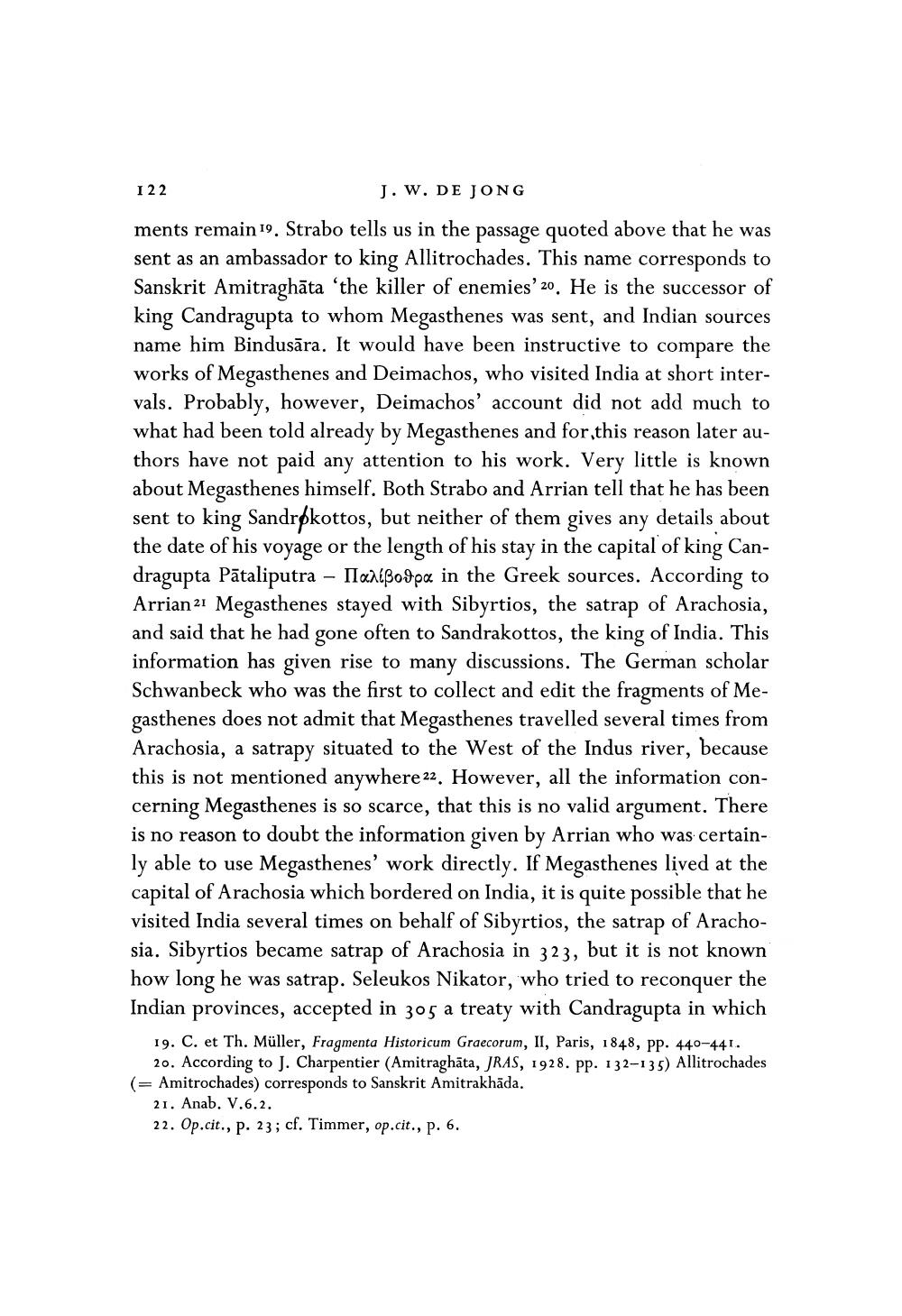Book Title: Discovery Of India By Greeks Author(s): J W De Jong Publisher: J W De Jong View full book textPage 8
________________ 122 J. W. DE JONG ments remain 19. Strabo tells us in the passage quoted above that he was sent as an ambassador to king Allitrochades. This name corresponds to Sanskrit Amitraghāta 'the killer of enemies’20. He is the successor of king Candragupta to whom Megasthenes was sent, and Indian sources name him Bindusāra. It would have been instructive to compare the works of Megasthenes and Deimachos, who visited India at short intervals. Probably, however, Deimachos' account did not add much to what had been told already by Megasthenes and for this reason later authors have not paid any attention to his work. Very little is known about Megasthenes himself. Both Strabo and Arrian tell that he has been sent to king Sandrokottos, but neither of them gives any details about the date of his voyage or the length of his stay in the capital of king Candragupta Pātaliputra – lahißolpa in the Greek sources. According to Arrian 21 Megasthenes stayed with Sibyrtios, the satrap of Arachosia, and said that he had gone often to Sandrakottos, the king of India. This information has given rise to many discussions. The German scholar Schwanbeck who was the first to collect and edit the fragments of Megasthenes does not admit that Megasthenes travelled several times from Arachosia, a satrapy situated to the West of the Indus river, because this is not mentioned anywhere 22. However, all the information concerning Megasthenes is so scarce, that this is no valid argument. There is no reason to doubt the information given by Arrian who was certainly able to use Megasthenes' work directly. If Megasthenes lived at the capital of Arachosia which bordered on India, it is quite possible that he visited India several times on behalf of Sibyrtios, the satrap of Arachosia. Sibyrtios became satrap of Arachosia in 323, but it is not known how long he was satrap. Seleukos Nikator, who tried to reconquer the Indian provinces, accepted in 305 a treaty with Candragupta in which 19. C. et Th. Müller, Fragmenta Historicum Graecorum, II, Paris, 1848, pp. 440-441. 20. According to J. Charpentier (Amitraghāta, JRAS, 1928. pp. 132-135) Allitrochades (= Amitrochades) corresponds to Sanskrit Amitrakhäda. 21. Anab. V.6.2. 22. Op.cit., p. 23; cf. Timmer, op.cit., p. 6.Page Navigation
1 ... 6 7 8 9 10 11 12 13 14 15 16 17 18 19 20 21 22 23 24 25 26 27 28
